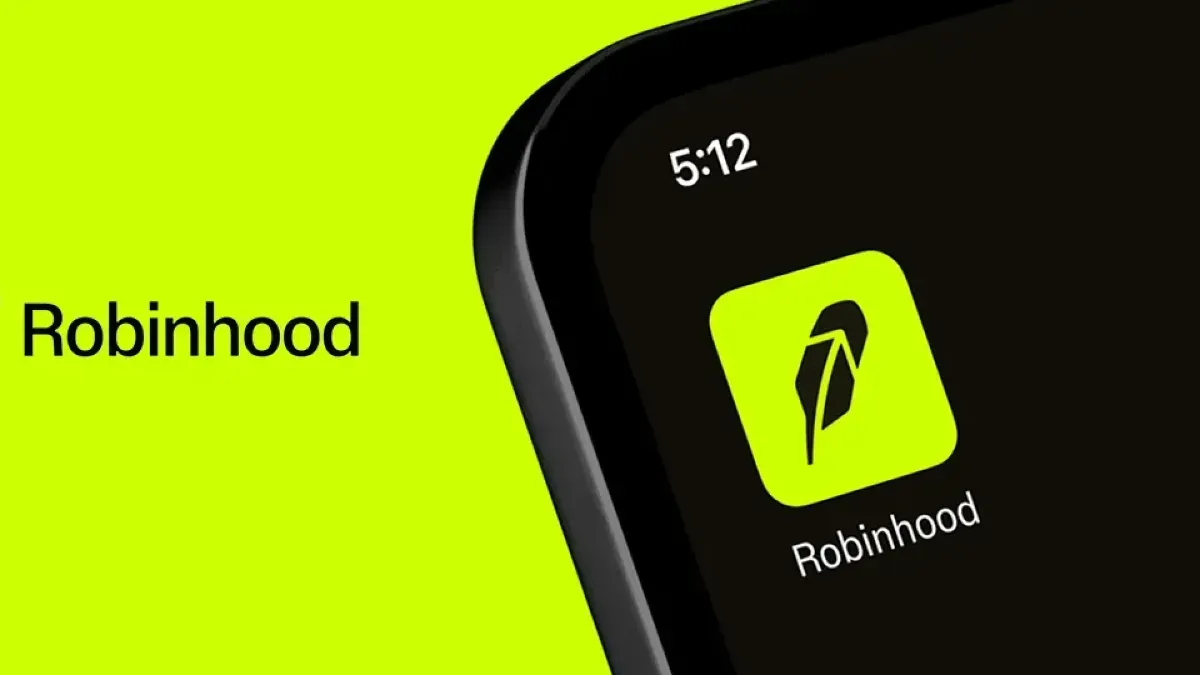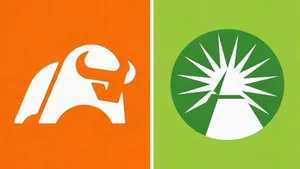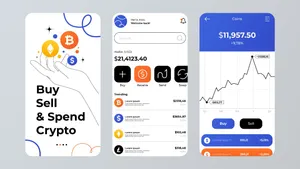Robinhood is famous for dismantling barriers to entry. It pioneered $0 commission trading and made investing accessible to a new generation, packaging financial markets into a sleek, gamified mobile app.
Its core mission is clear: Simplicity is the key to mass adoption.
For a beginner, the question is whether that simplicity is a genuine benefit for building long-term wealth, or if it lacks the critical tools and resources necessary to grow beyond the basics.
The answer depends on your investment goal: Robinhood is great for getting started, but poor for deep financial planning.
The Pros — Why Robinhood is Perfect for Beginners
Robinhood’s appeal lies in its user experience and accessibility features:
1. Unmatched Simplicity and Mobile UX
Robinhood has the cleanest, most intuitive mobile interface in the brokerage world. It makes buying your first stock or ETF feel as easy as ordering food. The learning curve is almost flat, which makes it perfect for new investors who might otherwise be too intimidated to start.
2. Fractional Shares and Crypto
You can purchase fractional shares of most stocks and ETFs with as little as $1.00. This feature allows for seamless Dollar-Cost Averaging (DCA) and diversification, as every dollar you save goes immediately to work. It also provides direct, commission-free access to cryptocurrencies (though limited in selection).
3. The Robinhood Gold IRA Match
Robinhood has made a surprising commitment to retirement investors. Their individual retirement accounts (IRAs) offer a high match on contributions, often 1% or more (up to 3% for Gold members). This immediate return on retirement savings is a powerful incentive, especially for young investors.
The Cons — Where Simplicity Becomes a Limitation
For a serious long-term investor, the platform's simplicity becomes its primary weakness, lacking the necessary tools for informed decision-making.
1. The PFOF Controversy and Research Deficiency
Robinhood receives a significant portion of its revenue from Payment for Order Flow (PFOF). Critics call this a "backdoor commission," arguing that the broker prioritizes routing your trade to the market maker who pays the most, rather than the one who guarantees you the best execution price.
- Limited Research: The app provides minimal fundamental research, leaving beginners without deep financial analysis tools (like access to Morningstar reports or analyst ratings) that established brokers like Fidelity offer for free.
2. Lack of Portfolio Depth
Robinhood's focus on essential assets means it omits important long-term investment vehicles:
- No Mutual Funds: You cannot buy traditional mutual funds. This restricts options for investors who rely on mutual funds for retirement savings.
- No Bonds/Fixed Income: Fixed income is generally only available through bond ETFs, limiting strategies for investors nearing retirement.
3. Limited Account Types
Robinhood is restrictive for investors with complex needs:
- It does not support joint accounts.
- It does not support custodial accounts for children.
- It does not support more complex tax-advantaged accounts (like 529 plans or HSAs).
Robinhood Gold (Is the $5/Month Worth It?)
Robinhood Gold is a subscription service ($5 per month) that packages professional tools to bridge the gap between the simple app and the demands of serious investing.
| Gold Feature | Value Proposition |
| IRA Match Boost | Increases the IRA contribution match (often from 1% to 3%), making it a potent tool for long-term retirement savers. |
| Professional Research | Provides access to premium reports from services like Morningstar and Nasdaq Level II data. |
| High Cash Yield | Pays a higher interest rate on uninvested cash. |
| Margin Investing | Offers a lower interest rate on money borrowed against your portfolio (margin). |
Verdict on Gold: Robinhood Gold is highly valuable only if you are aggressively funding your IRA or plan to use margin. For the casual beginner, the basic, free account is sufficient.
Final Verdict: Who is Robinhood Best For?
The choice comes down to your priorities:
- Best for Mobile/Casual Investing: If your goal is to buy and sell stocks and ETFs quickly on your phone with the lowest possible entry cost and a clean interface, Robinhood is a top contender.
- Best for Long-Term/Complexity: If your goal is to build long-term wealth across retirement, mutual funds, and HSAs, Fidelity or Charles Schwab are superior due to their full suite of account types and advanced research.
Robinhood is an excellent introductory platform that encourages new people to invest. You should use it to get your footing, but recognize that as your wealth and knowledge grow, you may need to move to a full-service broker like Fidelity for deeper tools and account features.






